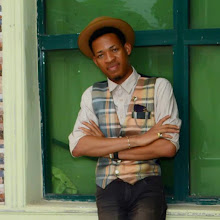Why Nigeria has not experienced military coup since 1999 – Obasanjo
 |
| Why Nigeria has not experienced military coup since 1999 – Obasanjo |
A former Nigerian president, Olusegun Obasanjo, has explained why Nigeria has not experienced military intervention in its democratic journey since 1999.
Mr. Obasanjo gave the insight in a book titled “Making Africa Work”, launched recently in Victoria Island, Lagos.
The book was co-authored by the former president and three others – Greg Mills, Director of Brenthurst Foundation; Jeffrey Herbst, President of NEWSEUM and Dickie Davis, a retired major general.
Mr. Obasanjo, who first ruled Nigeria as a military head of state between 1976 and 1979, later governed the nation as a democratically elected leader between 1999 and 2007.
While giving insights into how nations of the world can put an end to military interventions, the former president explained that no matter the excuse, military interventions had major negative impact on democracy, governance and unity of Nigeria.
He, however, argued that the often prescribed solution of specifically putting a ban on coups in the constitution was not the answer.
“A coup is a treason punishable by death only if it fails, and yet it puts the plotter in the State House if it succeeds. It was a destructive and destabilising practice, wasteful for the military itself, and undermining in terms of discipline, good order and military conduct,” Mr. Obasanjo wrote.
“A junior officer takes a gun and looks at his political boss and senior officers through its sights, bumps them off and puts himself in the State House.
“He instantly becomes superior and senior to all political and military officers. Such was the situation existing in Nigeria between 1966 and 1999.”
Giving specific insight into how he handled the challenge when he was in office, Mr. Obasanjo revealed how he cleverly placed senior military officers on compulsory retirement.
“On assuming office as president, I decided to put an end to these incessant coups. I asked the military to submit the list of all officers who had either participated in coups in the past or benefited in the dividends of coups by being appointed to political office as governors or ministers,” the former president wrote.
“Not knowing what the list was meant for, the military faithfully compiled it and submitted to me as the commander-in-chief and chairman of council of each of the arms of service. Ninety-three officers in all were given six hours’ notice of retirement on a Friday, and ordered not to spend the Friday night in uniform or in barracks to prevent adverse reaction.
“The following Monday, the service council met to ratify the retirement of all the officers. From my vantage position and background as a battle-tested and war-victorious general, I knew that an officer out of uniform and barracks is like a fish out of water, and their power and influence would be greatly diminished.
“The retirement of these 93 officers all in one day was salutary. It meant that taking part in a coup ot benefitting from one could catch up with you, no matter how long it would takes, and for as long as you are alive,” he explained.
Mr. Obasanjo, however, noted that the officers’ retirement did not stand in the way of any of them entering public life or making progress in it.
“Some of them later entered politics and became elected governors; some went into parliament; others got appointed as ministers and ambassadors,” he wrote.
“The idea was not to punish them for life but to exclude them from positions in the military where they could be coup planners, coup plotters, coup executors or coup beneficiaries.
“And once an officer has tasted the trappings of a political life, of living in a government house, with free food and so on, he would easily look for excuses to want more if he is in a position to make it happen.”
Explaining why the nation hasn’t experienced such incidence of coup d’etat, the former president said the measure was quite effective even if it wasn’t perfect.
“The fact that since 1999, there has not been a coup or an attempted coup in Nigeria speaks to the effectiveness of the measures taken to put an end to the destabilizing influence of coups on the political life and dispensation of Nigeria.
“Before 1999, and since independence, the longest that a democratic dispensation had lasted was six years –from 1960 to 1966.
“It has neither been easy nor perfect, but there are improvements and evidence of learning among the political class. Any bad signs and misconduct would have to be carefully monitored,” he argued.
He also urged countries with similar experiences to find an effective and relatively painless way of curbing the incidence of coups and corruption by the military.
Until 1999, Nigeria had experienced several military interventions in its politics, beginning from 1966.
Recently, there were reports of rumoured coup plots in the Nigerian army but the military authorities said such alleged plots had been nipped in the bud.










Leave a Comment